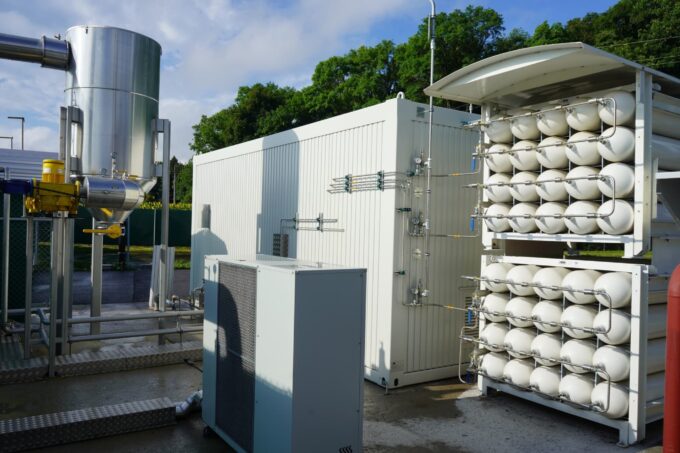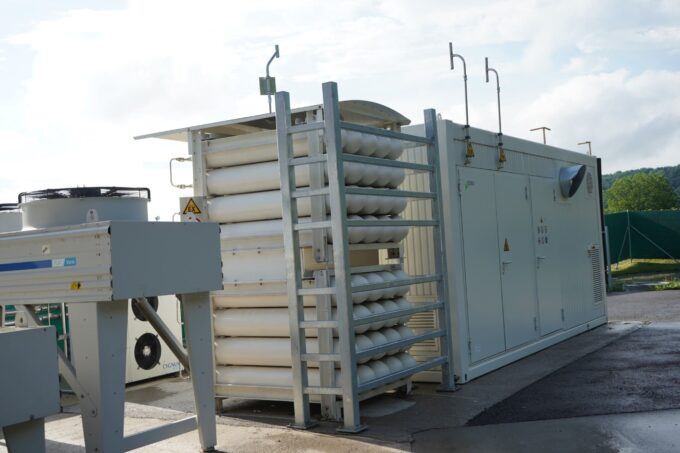Environment: Bio-residues become fuel 🎥
MOST FROM MANURE Thanks to biogas from liquid manure, dung and other organic residues, fuel is now available directly from the farm for the first time in Switzerland. CNG vehicles can obtain the CO2-neutral biogas at the first public filling station.
A lighthouse project in Thayngen makes it possible. Andrea Müller's family farm cultivates its fields in a climate-neutral way using renewable fuel, which covers the farm's entire energy requirements.
Biogas from liquid manure, dung and other residual materials is turned into fuel. As this biogas is renewable and CO2-neutral, natural gas vehicles that are filled at this biogas filling station on the farm are automatically climate-friendly on the road.

Contribution to sustainable energy supply
Andrea Müller: "With our biogas plant, we can use the liquid manure and dung as well as other organic residues from the region sensibly. Together with my husband Christian, I founded Müller Energie GmbH in 2012 when we expanded the farm in order to contribute to a sustainable energy supply. The agricultural biogas plant was expanded and has now been extended to include Switzerland's first on-farm biogas filling station."
No loss of payload and range
The aim is to ensure greater energy security for everyone and to establish regional energy cycles. The local waste disposal specialist, which runs its refuse collection vehicle on biogas, also benefits from these advantages.
Andrea Müller: "The biogas upgrading plant with filling station replaces a good 200,000 liters of diesel every year, meaning that waste collection from Thayngen and the production of our potatoes are CO2-neutral."
Pascal Lenzin, CNG mobility expert at Energie Wasser Bern, adds: "Thanks to biogas and liquefied bio-LNG, diesel trucks can now be replaced - without any loss of payload or range. This saves around 100 tons of CO2 per vehicle used."
Green electricity for 400 and heat for 250 households
The agricultural biogas plant on the Müller family's farm supplies green electricity for 400 households and heat for 250 residential units, a school building and four commercial enterprises from 15,200 tons of manure, slurry and biogenic residues every year. And now there is also biogas for the farm's own biogas filling station.












